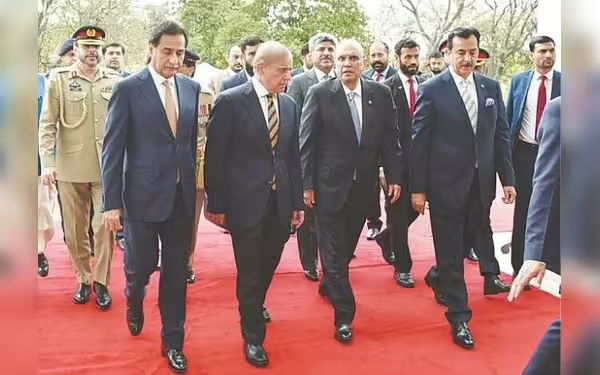Saturday, November 16, 2024 05:38 PM
ECP's Defiance of Supreme Court Raises Concerns Over Democracy in Pakistan
- ECP refuses to implement Supreme Court's verdict.
- Political influence jeopardizes electoral integrity.
- Public trust in democracy is at risk.
 Image Credits: dawn.com
Image Credits: dawn.comECP's refusal to follow Supreme Court's ruling raises serious concerns about democracy and electoral integrity in Pakistan.
The political landscape in Pakistan has been tumultuous, especially concerning the role of the Election Commission of Pakistan (ECP). Recently, the ECP has come under scrutiny for its apparent reluctance to comply with directives from the Supreme Court. This situation has raised eyebrows and sparked discussions about the independence and accountability of electoral bodies in the country.
On Wednesday, it was reported that the ECP has decided not to implement the Supreme Court’s verdict regarding the reserved seats case. Instead, the commission plans to seek further opinions from ‘legal experts’ before taking any action. This decision has been interpreted by many as a blatant disregard for the Supreme Court's authority, which is concerning for the rule of law in Pakistan.
The backdrop to this situation is a year marked by political maneuvering and legal challenges. The ECP, which is responsible for overseeing fair elections, seems to be caught in a web of political influence. The federal government appears to be providing political cover for the ECP, allowing it to sidestep the Supreme Court's ruling. This raises questions about the integrity of the electoral process and the extent to which political entities can influence independent institutions.
Many citizens are left wondering what this means for the future of democracy in Pakistan. The ECP's actions could set a dangerous precedent, where legal rulings can be ignored if they do not align with the interests of those in power. This situation not only undermines the authority of the judiciary but also erodes public trust in the electoral process.
As the situation unfolds, it is crucial for the citizens of Pakistan to remain vigilant and informed. The health of a democracy relies on the checks and balances between its institutions. If the ECP continues to evade its responsibilities, it could lead to a significant backlash from the public and civil society. Ultimately, the hope is that all parties involved will prioritize the rule of law and the democratic process over political expediency.













